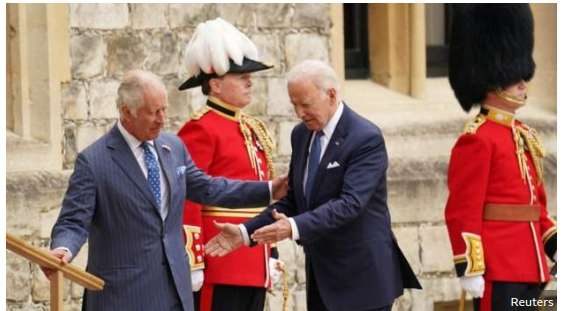New Report Alleges Longstanding Cognitive Decline in President Biden.
Concerns Regarding President Biden’s Cognitive Health and White House Management
Reports from various news outlets have raised concerns about President Joe Biden’s cognitive health during his presidency. The Wall Street Journal, in particular, has detailed how White House aides have reportedly managed his schedule and interactions to accommodate his mental acuity. These measures allegedly include limiting his meetings, shielding him from negative news, and having senior advisors step in to handle responsibilities typically assigned to the president. These actions, purportedly aimed at minimizing fatigue, preventing mistakes, and maintaining the administration’s smooth operation, have fueled public speculation and debate regarding the president’s fitness for office. The practice of adjusting the president’s schedule based on his daily mental state has also drawn scrutiny, raising questions about the transparency and consistency of his leadership.
Further concerns stem from President Biden’s reported reliance on notecards and teleprompters, coupled with infrequent public appearances and interactions with the press. These observations, combined with reports of struggles with memory and energy levels, particularly during preparations for a special counsel interview, have amplified anxieties about his cognitive abilities. The continuation of a tightly controlled schedule during his reelection campaign, ostensibly to avoid public missteps, has further solidified the narrative of a president whose cognitive capabilities are being carefully managed. Critics argue that such measures not only raise questions about the president’s capacity to fulfill his duties but also erode public trust in the administration’s transparency.
Adding to the complexity of the situation are the multiple visits of Dr. Kevin Cannard, a neurologist specializing in Parkinson’s disease, to the White House during President Biden’s term. While the White House has clarified that Dr. Cannard has served as a neurology consultant since 2012, primarily caring for active-duty military personnel, the frequency of his visits during this specific period has raised eyebrows. Despite official statements that Dr. Cannard participated in the president’s annual physicals and found no evidence of Parkinson’s or other neurological disorders, public speculation persists, fueled by observations of symptoms often associated with Parkinson’s Disease. The White House’s insistence that the President is not being treated for Parkinson’s has further fueled public speculation, with some questioning what other condition might explain his symptoms. This lack of clarity, coupled with the tightly managed public appearances and reported cognitive struggles, fuels the ongoing public discourse.
Former CNN journalist Chris Cillizza has publicly admitted to downplaying concerns about Biden’s cognitive health during his time at the network. He attributed his reluctance to critically examine Biden’s condition to a fear of being accused of "age shaming." However, Cillizza has since acknowledged the validity of the Wall Street Journal’s reporting on the controlled management of Biden’s schedule and interactions, expressing regret for not questioning the president’s capabilities earlier. He cited a particular debate as a turning point that exposed Biden’s weaknesses, ultimately leading to his withdrawal from a previous race. Cillizza’s admission has further fueled the debate surrounding media coverage of the president’s health, with some accusing journalists of exhibiting bias and failing to hold the administration accountable. This self-critique from within the media adds another layer to the ongoing discussion about transparency and the responsibility of the press.
Meghan McCain’s criticism of Cillizza, accusing him of ignoring Biden’s decline due to partisan motivations, highlights the highly politicized nature of this issue. Her comments underscore the difficulty of having an open and objective conversation about the president’s health, as any expression of concern can be quickly dismissed as politically motivated. This polarization hinders meaningful discussion and prevents a thorough examination of the potential implications of the president’s health on his ability to govern effectively. The accusations of partisan bias, both from and towards the media, create a challenging environment for objective analysis and reporting.
The convergence of these factors—the reported management of Biden’s schedule, his reliance on aides and visual aids, the visits from a neurologist specializing in Parkinson’s, the changing narratives from media figures, and the accusations of political bias—has created a complex and contentious public discourse. At the heart of this discussion lie fundamental questions about transparency and accountability in leadership, particularly concerning matters of public interest. Critics argue that the lack of open communication regarding the president’s health not only undermines public trust but also raises serious implications for national security and the overall stability of the government. The ongoing debate highlights the need for a more open and honest dialogue regarding the health of public figures, especially those holding positions of significant power. The current situation underscores the delicate balance between protecting an individual’s privacy and upholding the public’s right to know about matters that could significantly impact the nation’s well-being. The potential implications for national security and the integrity of the democratic process demand a more thorough and transparent approach to addressing these concerns.
Share this content:












Post Comment